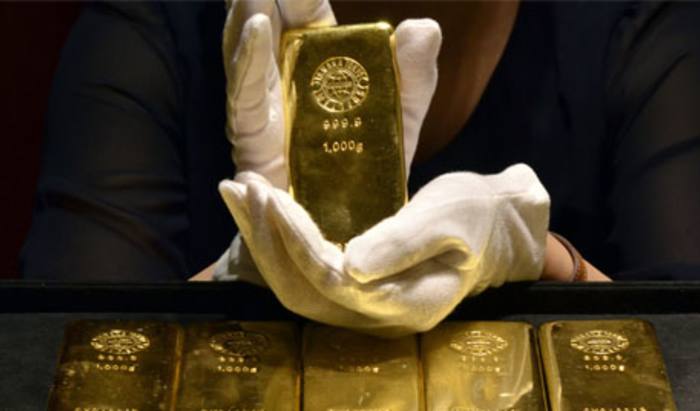
Market participants fear the “nature of gold as an investment has changed forever” and blame exchange-traded funds (ETFs) for causing the precious metal to lose its safe-haven status.
Jim Wood-Smith, head of research at discretionary manager Hawksmoor, said the group had removed its allocation to gold, blaming the ETF industry for the metal’s recent performance.
Gold has not performed quite as well as might have been expected given the recent declines in US government bond yields and the dollar.
The price of bullion tends to move inversely to the dollar, creating a headwind for gold during the currency’s strong rally in the 12 months to March 2015.
But the dollar index’s decline since March, and recent market falls, have not been accompanied by a rebound in the precious metal.
The gold spot price – which currently stands at $1,143 per troy ounce – has dipped 0.5 per cent in that period, continuing the downward trend seen since the end of 2012.
“The development of the ETF industry has forever changed the nature of gold as an investment,” Mr Wood-Smith said.
“It is no longer scarce, nor illiquid. The price of gold has fallen throughout this year and has barely flinched at times when we would have thought its traditional safe-haven status would have seen strong demand. We have lost patience.”
Gold has historically been thought of as a store of value, in large part because the difficulty in buying and selling the metal made it a highly illiquid asset.
But the development of ETFs means the asset can be traded as a regular market index.
Hector McNeil, chief executive of ETF provider WisdomTree Europe, said the development of a gold ETF had “broadened the appeal of gold and made it more democratic”.
But he added: “You may have more fair-weather investors that weren’t able to invest in gold before, which may increase its volatility.”
Apollo Multi Asset multi-manager Ryan Hughes also dumped his holdings in the metal recently. He said the asset “stopped behaving in a rational and predictable manner”.
“It no longer had safe-haven status and that makes it difficult to use in portfolios,” he added.
“Given major structural headwinds from the dollar and ETFs, it’s hard to see us returning to hold [gold] in the near future.”
Parmenion senior investment manager Meera Hearnden said ETFs were not the only reason gold had lost its safe-haven status. She agreed some appeal was lost because of volatility brought by ETFs, but other factors were also relevant.
The manager also pointed to the absence of inflation generally, dollar strength and depressed jewellery demand from India and China.
In spite of this, Ms Hearnden was not as bearish as her peers and thought gold could yet look attractive. “I’m not sure we are there yet, but increasing inflation in the system and a weakening dollar could be some signals for a buying opportunity,” she said.





